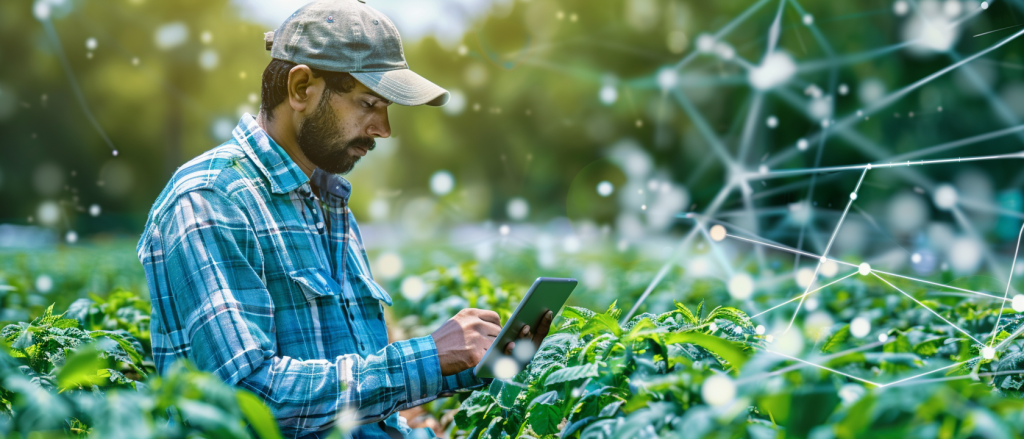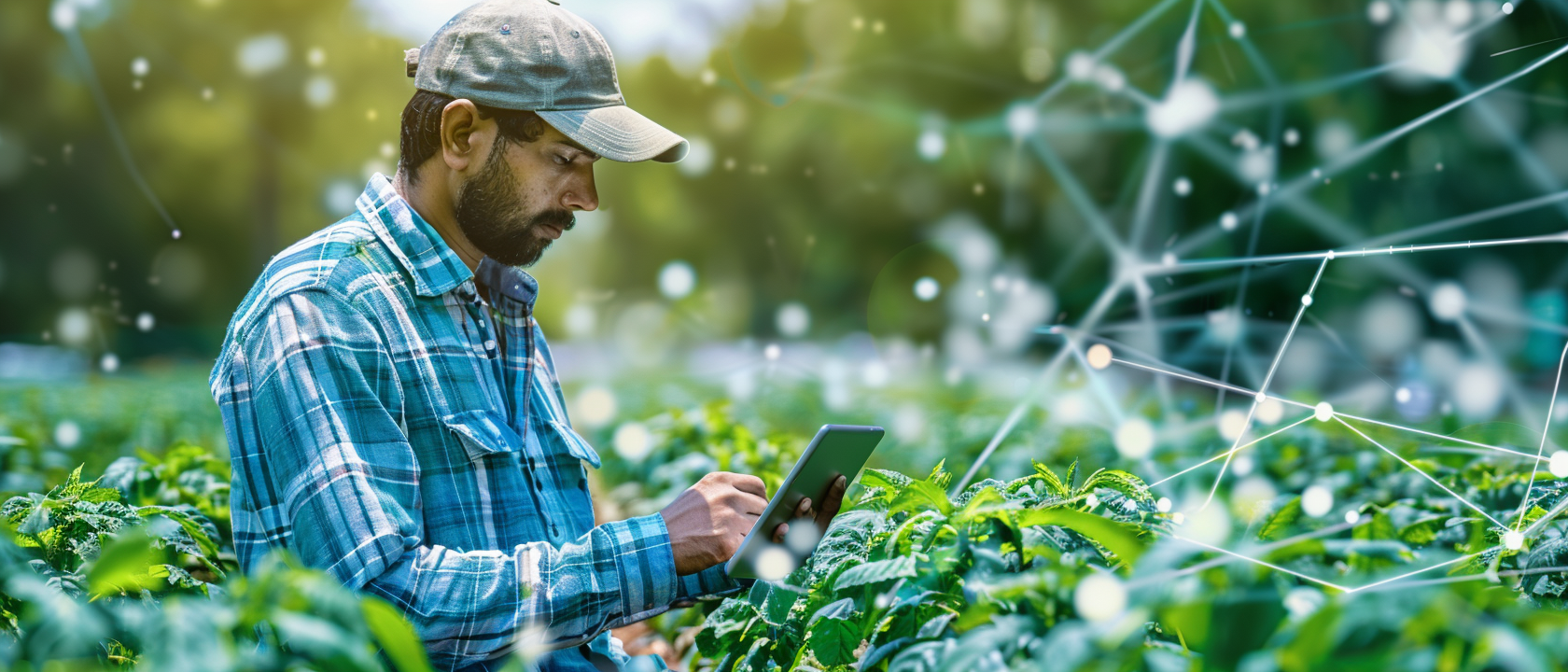
India is a nation with a rich agricultural heritage. It faces numerous challenges, from unpredictable weather patterns and resource scarcity to increasing demand for food. Amidst these challenges, Artificial Intelligence (AI) is emerging as a promising tool to revolutionize the agricultural landscape. We explores how AI is optimizing yields, improving resource management, and fostering a more sustainable future for Indian agriculture.
AI-powered Solutions for Farmers:
- Precision agriculture: AI algorithms can analyze data from various sources. Satellite imagery, weather forecasts, and soil sensors are used to provide farmers with personalized insights into their fields. This allows them to make informed decisions about crop selection, fertilizer and water usage, and pest and disease management, leading to increased efficiency and productivity.
- Disease and pest detection: AI-powered tools can analyze images and sensor data to detect crop diseases and pests in their early stages. Early detection allows farmers to take timely and targeted action, minimizing crop damage and associated yield losses. Microsoft and IMB (Watson) have partnered Indian farmers to test their technology.
- Resource management optimization: AI can analyze data on water availability, soil conditions, and weather forecasts to optimize water irrigation and fertilizer application, ensuring efficient resource utilization and minimizing wastage. This combined with IoT makes for automation at a level never seen before.
- Market prediction and demand forecasting: AI can analyze market trends and historical data to predict future demand for specific crops. This information can help farmers plan their production and pricing strategies more effectively, potentially leading to increased profitability.
Examples of AI in Action:
- DeHaat: This online platform utilizes AI to connect farmers directly to buyers, eliminating intermediaries and ensuring fair pricing. (https://agrevolution.in/)
- KhetiBuddy: This AI-powered platform provides farmers with personalized advisory services on crop selection, pest management, and weather forecasting, promoting informed decision-making. (https://khetibuddy.com/)
Challenges and the Road Ahead:
While AI offers immense potential, there are challenges to overcome:
- Accessibility and affordability: Ensuring that AI solutions are accessible and affordable for small and marginal farmers, particularly in rural areas, is crucial for equitable impact.
- Data privacy and security: Protecting farmer data privacy and ensuring data security are essential concerns that need to be addressed through robust legal frameworks and responsible development practices.
- Digital literacy and infrastructure: Bridging the digital divide and equipping farmers with the necessary skills to utilize AI technologies effectively is crucial for widespread adoption.
Conclusion:
AI presents a significant opportunity to transform Indian agriculture by optimizing yields, improving resource management, and empowering farmers with data-driven insights. By addressing existing challenges, fostering collaboration between stakeholders, and promoting responsible development practices, India can leverage this transformative technology to build a more sustainable, resilient, and prosperous agricultural sector.
Additional Resources:
- McKinsey & Company: The Future of Farming in India https://www.mckinsey.com/industries/agriculture/our-insights/how-agtech-is-poised-to-transform-india-into-a-farming-powerhouse
- Government of India: Smart Agriculture (website): https://www.facebook.com/p/SMART-AGRI-100087039862303/
- The World Economic Forum: AI for Agriculture in India: https://www.weforum.org/agenda/2024/01/how-indias-ai-agriculture-boom-could-inspire-the-world/
- Invest India: Artificial Intelligence in Indian Agriculture: https://cio.economictimes.indiatimes.com/news/next-gen-technologies/digitizing-indian-agriculture-with-ai-ml-and-iot/107073218




